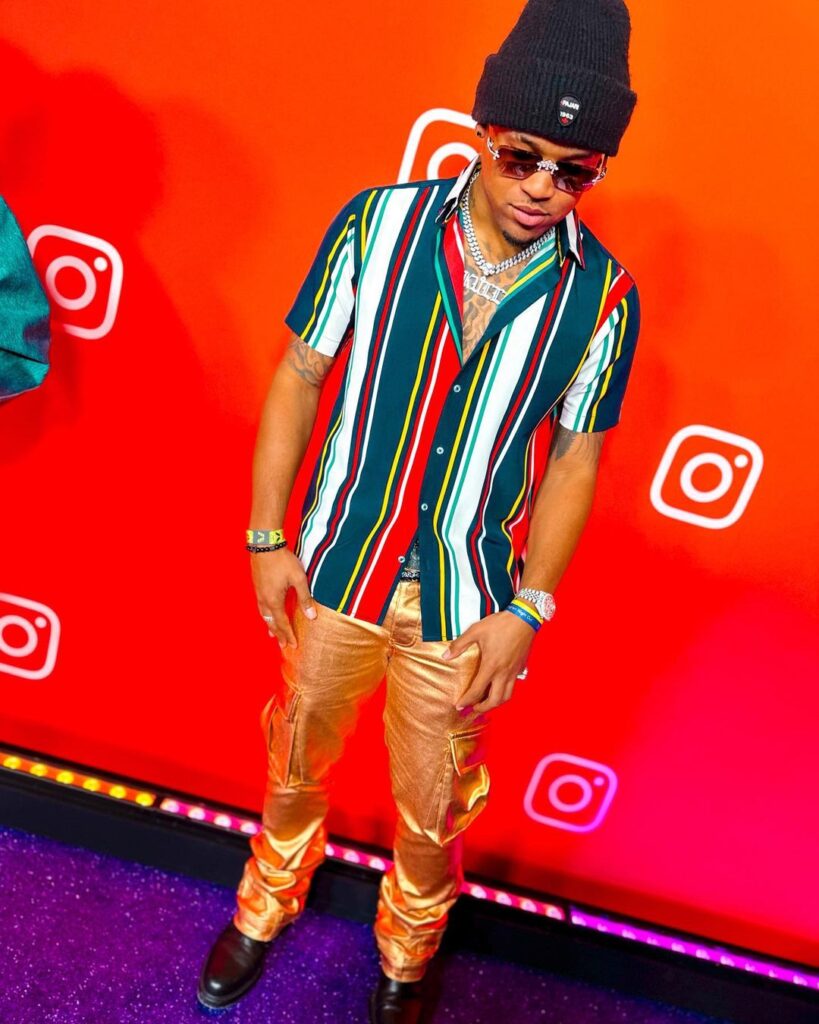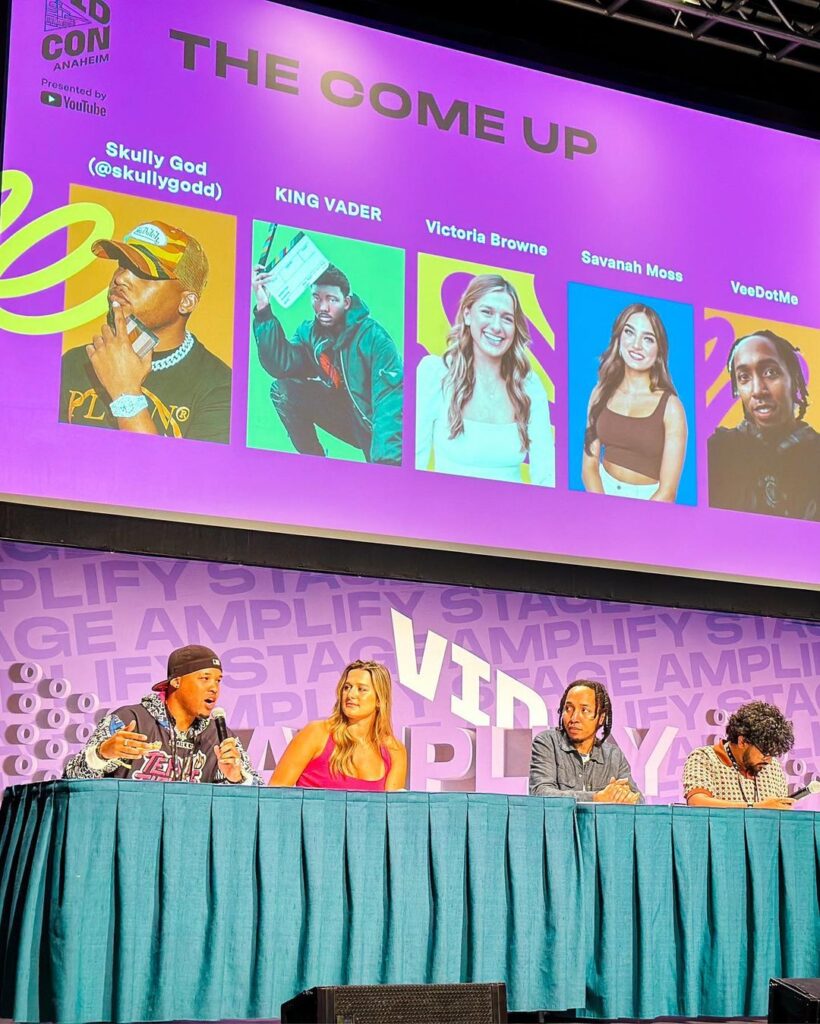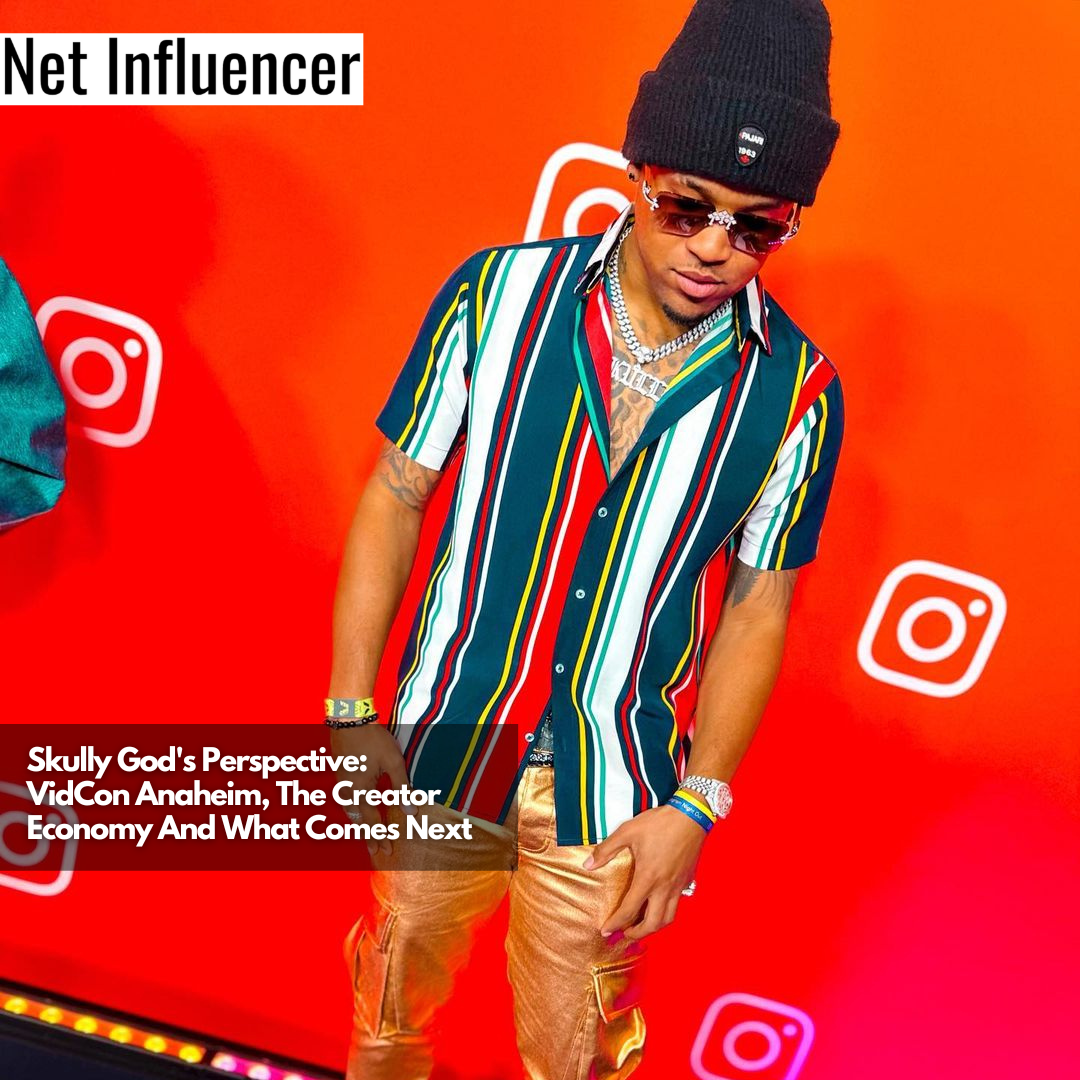Influencer
Skully God’s Perspective: VidCon Anaheim, The Creator Economy And What Comes Next
Skully God, renowned dancer, actor, and model, discusses his journey from dancing in high school to being a prominent figure in the creator economy in this interview. Reflecting on his experiences at VidCon Anaheim, the significance of the creator economy in online marketing, and how it has changed his life, Skully God provides an intriguing insider’s perspective. He shares the opportunities and challenges he sees within the creator economy and offers his predictions on emerging trends, particularly the shift toward video content and the revival of old trends.
Aside from being a dancer, Skully God is also an actor and model. He started dancing in high school when he was about 15 years old. He was frequently using YouTube because this was the only platform available and accessible to him back then.
It wasn’t long before he started doing dance tutorials on YouTube, as people requested for it. He left off to make music as he wanted the music to dance to. He created his dance crew and danced to their own recorded music. He did this for a few years throughout high school.
When he graduated, he switched over to rap, changed his name, and stopped doing dance videos on YouTube as his account got hacked. He lost all of his audience and traction on the platform and had to start all over again.
He continued doing rap music for a while and then took a break for a few years. When he came back, TikTok came out and decided to try to get back to dancing. He started doing TikTok and music again. “It’s basically like a restart of what I was doing in high school. I restarted it all over again,” Skully God adds.
For Skully God, the creator economy plays an essential role in online marketing because creators are the only ones who can promote just about any brand or service — whether that’s new apps, tech, stores, or blogs.
“We’re like the main point if you’re trying to do any type of internet marketing. Running ads is cool, but you have to tap the influencers and creators online [to get more traction],” he adds.
Can you tell us about your experience being a featured creator at VidCon Anaheim and what it means to you?
“It means a lot to me because I was trying to go to VidCon Anaheim since I’ve been a creator,” Skully God says. Everything about the VidCon Anaheim has been a great experience for him so far. There were a lot of lounges and people whom he already knew.
“It’s such a great opportunity to connect with all the people in the industry, other creators, and even with your fans.”
What Skully God is most excited about is being able to do public things for the first time. He explains further by telling us, “Normally, I’m just on the internet. People can’t never really see me in person. So finally, I’m out in public meeting people and supporters and joining a panel to tell people about myself.”
How has the creator economy impacted your own career as a content creator?
“The creator economy has changed my life.” Skullygod had a job about two and a half years ago and decided to educate himself about content creation and saw the importance of what he was doing. He started taking a bigger responsibility for his role as a content creator and worked on making it into a career as he saw people around him making a living in the industry.
He always thought the people he saw on TikTok had other jobs but was surprised when he was told that being on TikTok was actually their job. “I had to learn and figure out how do I actually turn it into something that actually pays my bills,” Skully God says.

Because of his own experience, he’ll never tell or discourage anyone not to pursue content creation as a full-time job. Creators might need to have a job as their career in content creation is still starting, but eventually, they can actually live off of it. And this is something that Skully God himself is still barely trying to figure out, too.
Nowadays, Skully God recognizes that there are plenty of opportunities for anyone to become a content creator because they can do everything on their phones. But he says that it’s not easy as creators have to learn a lot and put in the work.
Most importantly, creators have to remain consistent with their efforts. They have to post a lot and stray away from the idea that anyone can get a huge following overnight.

What are some opportunities and challenges you see within the creator economy?
One of the challenges Skully God sees in the creator economy is the pay. There isn’t any structure on how creators are paid. As a result, brands pay them whenever and whatever amount.
He explains further, “The expectation is like 24 hours. Brands say, ‘We need your video done within 24 hours. We don’t care what you’re doing, where you’re at.’ But then, they don’t pay us. It can be up to two months before we get paid.”
Skully God hopes that there will be some kind of structure in paying creators and make it more incentivized for them. In this way, they’ll be more excited and happier about doing content because they’ll have peace of mind knowing that they’ll get paid in a couple of weeks.
Can you share any insights or strategies you’ve utilized to thrive in the creator economy?
Skully God didn’t have a management team when he started. For those who are currently in the same position, he advises them to do a lot of digging and talking to other creators, as many are actually nice and helpful in the industry. Many long-time creators will share how they’re living off without a management team.
He also advises creators to look for online apps and websites that do monetization on their platforms. He believes this is a great strategy to find and build partnerships and make money while being independent until they can sign for a big agency or management.
From your perspective, what trends do you foresee emerging in the creator space for the remainder of this year?
Skully God sees old trends coming back like videos of people doing the Dougie have been all over his news feed recently. Because of this, old dancers are getting ready to rise back up, which means that the newer dancers are kind of fizzling out a little bit. He’s also seeing the rise of prank videos again.
“I’d say if you got old content, get it ready and pull it back out,” Skully God suggests.
Are there any particular platforms or technologies you believe will have a significant impact on creators in the coming months?
According to Skully God, there’s no specific platform, but all platforms are trying to become video platforms. In the future, he feels that photos are going away and will be replaced by video content — there’ll be no more photos, and all will be video digital content.
When asked whether that video content will be in long- or short-form content, Skully God thinks it’s going to be short-form content because it’s friendly to everyone, not just for creatives. Only good creators can make effective long-form content, but with short-form content, anyone can make them, including individuals who don’t have year-long experience in content creation.
What goals or projects do you have planned for the rest of the year, and how do you envision achieving them?
Skully God’s focus right now is acting, but he’s also working on growing his YouTube channel again. He’s in the process of buying cameras and other equipment and trying to figure out how to make effective long-form content.
With his acting career, he’s been doing a lot of auditions. “I almost landed my first Hulu series. I was very close. I made it to the last audition but didn’t make it through the third round,” he shares. He’ll take acting classes for the rest of the years and do more auditions. He aims to land a role on either a movie or series in one of the streaming networks today.
Finally, as a featured creator, what advice would you give to aspiring creators attending VidCon Anaheim?
Skully God’s journey to being the creator he is today took him a lot of time. Because of this, he advises all aspiring creators to focus on developing themselves and creating content because what’s meant for them will eventually come — whether that’s brand deals or collaborations.
He encourages all aspiring creators who are still starting out to continue doing whatever they’re good at and remain consistent. In Skully God’s case, he was a dancer, so he made at least ten videos every day and posted a lot on various platforms. Once creators are to do what they’re good at, results will eventually come, which include excellent management and companies.
“There’s a lot of people who that are still not getting the results they want to see. It’s because they’re not actually doing networking and all the other extra stuff. You got to check your emails; there’s a whole lot of other things around aside from creating content,” he adds.
Once aspiring creators are familiar with all of this “extra” stuff, they’ll be fine and will continue to grow. Creators have to think of themselves as businesses that also have to have contracts, customers, and networks.





















